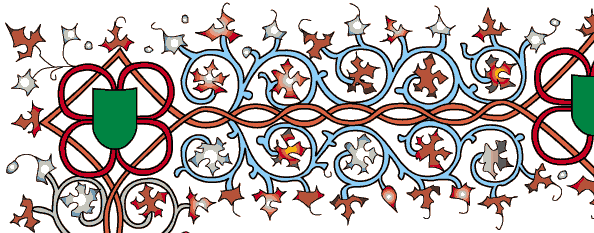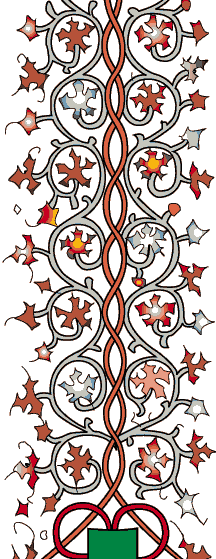
 Revolutions in Communication
Revolutions in Communication
Introduction
Like most people, I sometimes get blinding flashes of thought that turn into
the answer to questions I may have forgot I even posed. There I was in the Stanford
Bookstore waiting for a buddy when I saw a book called "Illuminated Manuscripts - the Book Before Gutenberg"
by Giulia Bologna. I knew I wasn't leaving the store without this book.
It was times of transition in communication that were in the back of my mind at the time,
and here was a book about such a transition with the privilege of a few centuries of hindsight.
I'd been thinking a lot about what is next for the
internet, and what early pioneers of other information revolutions were thinking. At the
beginning of most revolutions in communication, the pioneers of the new copied the old.
Early photographers copied the still lifes and posed morality tableaus that were popular
with painters of the time. The early movies were recycled stageplays.
As a web master and avid 3D animator. I often bemoan the fact that
when designing a shopping mall for the internet, designers need to model it after malls that
exist today to provide a smooth transition for people for whom even a computer is a novelty. Why
mimic the real-world when I can create fantasy worlds that give you the chance to shop while
wandering through a space station or coral reef. Alas, savvy users and bandwidth are
still problems, but soon, soon...
At the same time, when any revolution filters down to the masses,
the old way of communicating does not disappear. The movies didn't kill the stage. TV did
not kill the movies. Cave paintings showing where the game was plentiful, turn into pictograms,
heiroglyphs, alphabets or international word-less highway signs.
The last thought that congealed in a flash had to do with permanance.
The Rosetta Stone is a
way of communication that takes an enormous time to put together, but that can last the thousands
of years needed to be valuable to a generation far in the future. There may not be many papyrus
scrolls around from the time of Alexander, but there are some. The internet and TV are amazingly
quick in their abilities to change, but how long will the information last, and is it even
important to try to record today's content for a generation a thousand years hence? The creation
of the mass-produced book killed our need to remember the epic tales that travelling minstrels
told before Gutenberg. How has that changed us?
I'd like to expand on some of thes ideas on the
following pages, and hope you will Join Me and perhaps even add your own thoughts.
created by Bob Marzewski - Oct 1995

 Revolutions in Communication
Revolutions in Communication